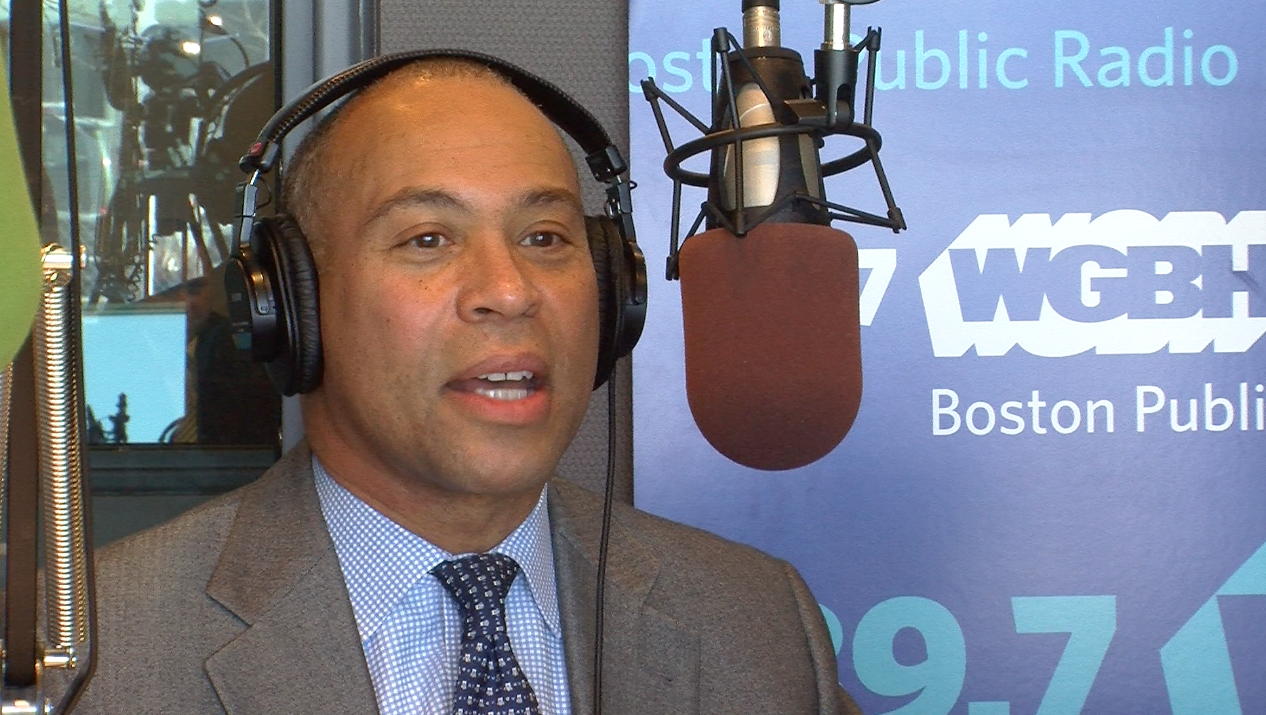
Gov. Deval Patrick talked higher-ed on Boston Public Radio Thursday.
In his budget out this week, Governor Deval Patrick is proposing higher education funding increases but not at last year's levels. Students are wondering whether those increases will be enough to offset the need to increase tuition and fees.
The Great Recession may be over, but its effects still linger at public colleges and universities.
A report by the Massachusetts Budget and Policy Center finds state funding for public higher education in Massachusetts is down 25 percent since 2001.
That fact is not lost on students like Patrick Lowe at UMass Medical School in Worcester.
"In a recovering economy right now, where families are struggling to afford education, it could really damage students,’ and the state’s, prospect of going to college and being able to afford it,” Lowe said.
While state support has decreased in Massachusetts, tuition and fees have skyrocketed. And Lowe says far too much of the financial burden has shifted to students.
Last year, the Legislature did make some adjustments and approved a budget allowing public colleges and universities to freeze tuition and fees — and today Gov. Deval Patrick is making a similar request.
"We’re proposing a state contribution this year that should enable them to do the same again,” Patrick said.
Speaking on WGBH News’ Boston Public Radio, Patrick said the real issue is college affordability.
“There’s been a working theory in higher ed, generally, for maybe the last decade, that is: Let’s raise tuition as high as the market will bear and raise financial aid to keep up on the theory that there are some people who can write the check and everybody else will be covered by some form of financial aid,” he said.
And Patrick says that theory is unsustainable, with Massachusetts taxpayers covering half of public college tuition.
Patrick, and Lowe and other students, are urging the Legislature to support that 50-50 split.
“We’re asking for that to continue in this year’s budget, which would require an increase in funding for the university this year,” Lowe said.
Nationwide, even as states begin to see increased tax revenues, spending on higher education remains lower than before the recession, says policy analyst Andrew Carlson.
“The economic downturn and its impact on state support for higher education was really unprecedented and more extreme than in past recessions,” Carlson said.
And economists say reduced higher-ed funding reflects overall concern about the nation’s economy.
Read the full report:










